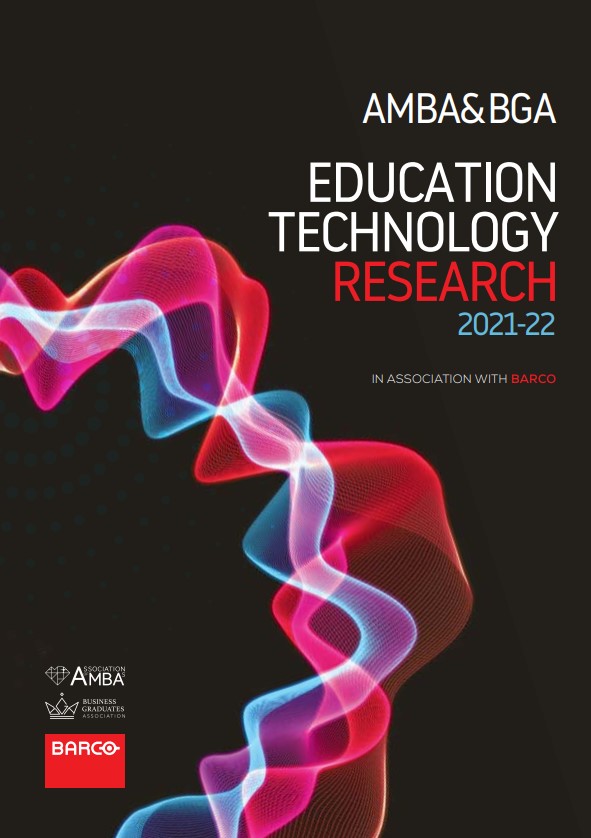Last year represented a tipping point for education technology (edtech) and was the year Business School leaders crossed the Rubicon into a future that has taken business education into a phase from which it can never return, says David Woods-Hale
AMBA’s Education Technology Report in association with Barco, published this month and based on a survey of 171 Business School leaders worldwide, tells the story of the edtech in 2020 and 2021.
The headline? Edtech is gaining momentum and shows no signs of slowing down. Three quarters (75%) of the Business School leaders that responded to our survey, said that their Schools are now using virtual classrooms – an increase from 51% last year.
In January 2021, when AMBA & BGA released the first iteration of its Education Technology Research, in association with Barco, the overarching takeaway was that things would never be the same as they were pre-Covid-19, and that a new era – one we’d only previously debated and considered – had arrived almost overnight.
The Business School leaders who took part in that research showed their Schools to be both pragmatic and agile in the face of the disruption caused during 2020. Initially reactive to the need for the rapid adoption of new technology in the face of social distancing, they then ascertained challenges quickly and moved to address them.
But, at that time, commentators in both the edtech and business education arenas were questioning whether Business Schools would be continuing to adapt to the impact of Covid-19, or if they would enter a new phase of innovation – moving from crisis mode to creative strategy and the development and finetuning of technology provision.
Nine months on, our latest piece of research reveals that Business Schools have more than adapted and that the vast majority of Business School leaders (84%) want to keep the technology they’ve put in place over the past 18 months, with no respondents wishing to return to their pre-Covid status quo.
Approximately two thirds of participants would like to see faculty and students continuing to work online in at least some aspects of the courses, suggesting that Business School leaders would like to see their Business School move to hybrid or blended models of education.
But perhaps most importantly, an overwhelming 83% of Business School leaders believe that the pandemic has triggered major changes to their long-term strategy. Business School leaders are confident that blended and hybrid models will replace the traditional classroom-based delivery of courses over the next five years.
It is flexibility of learning that has moved to the forefront of Business School leaders’ minds, in terms of their investment priorities for the next two years, with more than two thirds (67%) of leaders believing that is where their Business School must put its effort and budget.
There has been no shortage of investment in enhancing and improving learning systems, with the MBA receiving the most funding for digital teaching methods. More than three quarters of Business School leaders polled (77%) are continuing to invest in online technology to enable more flexibility, and eight out of 10 leaders plan to invest further in technology between now and 2023.
Now that the mechanics are in place for Business Schools to use technology effectively, the opportunities for business education to further develop global, agile, and personalised offerings seem limitless.




